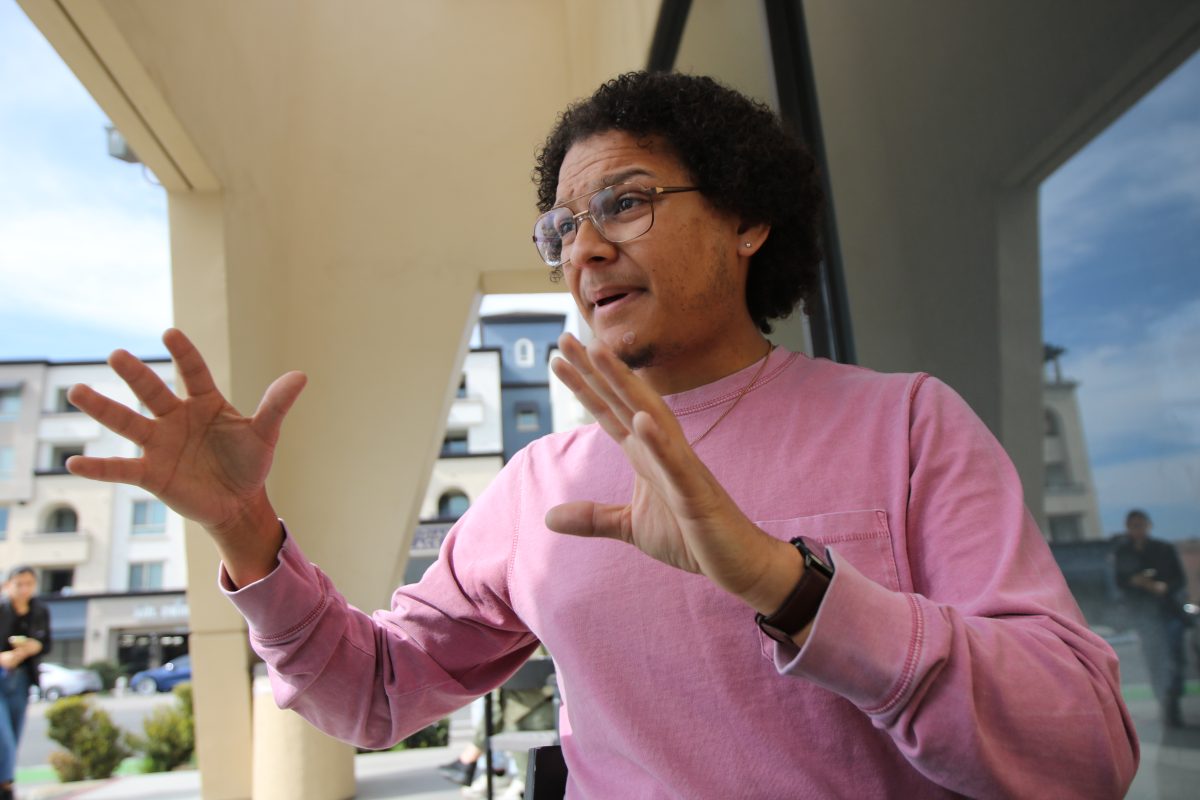Dr. Kristyan Kouri will present a lecture titled “The Life and Times of Xaviera Hollander” about famed sex columnist Xaviera Hollander on Sept. 18 at 1 p.m. in Sierra Hall Room 451.
Hollander, who was once a call girl and a famed New York madam in the 1970s, achieved mainstream success with the release of her bestselling book, “The Happy Hooker: My Own Story.” According to Kouri, Hollander then became known as someone who could write about sex positively and who could talk about women’s sexual pleasure.
Kouri’s lecture is part of a series of six colloquium presentations by CSUN faculty organized by Dr. C. Jacob Hale, the director of CSUN’s Center for Sex and Gender Research.
Hale said this series gives “faculty members an opportunity to present their scholarly work in progress in a supportive environment and to make more visible the expertise of CSUN faculty about sex, gender and sexuality.”
Kouri, who holds a doctorate in sociology from USC, describes the presentation as a “social psychological analysis of Hollander’s life.”
“I think that if she had had more opportunities, maybe she could have been a CEO. Her story speaks to the social constraints of society,” Kouri said.
Kouri added, “Prostitution is a Pink Collar occupation (jobs that are held primarily by women e.g. typists, secretaries). She fell into something that paid better (than her job as a secretary for the Dutch Consulate) and women are permitted to go into socially. Women are valued for their sexuality.”
She said that call girls like Hollander were usually poised, well-educated women, who moonlighted in the “high-class” profession.
“I believe that more women did than let on,” Kouri said.
Kouri said Xaviera, who had a sex addiction, had just been dumped by her fiancé and was angry. She would pick up many guys but did not charge the men until it was suggested that she charged for her services. After becoming a highly paid call girl, she then opened her own brothel. Hollander was arrested for prostitution and was deported from the United States in 1971.
Kouri believes that these were factors, along with her personality and even her being European, in Hollander’s decision to prostitute. She said that for some women, it is poverty and the need to provide for their family.
Hale, who is also a philosophy professor said, “So much about the attitude and representations about sex workers have been negative, downtrodden and exploited. She (Hollander) very much went against the common popular views.”
He further explained that Hollander is important because she achieved her popularity in the 1970s, a period when the feminist movement was beginning to take hold. Many feminists did not believe a woman could be a prostitute for “healthy reasons” and not out of exploitative motives.
“She enjoyed having sex and had many partners until a friend said ‘hey, you can make money from this,’” Hale said.
An anti-feminist feminist, he said, was an accurate description of Xaviera Hollander.
And while some might condemn prostitution and Hollander as criminal, Kouri believes the occupation has been criminalized because of the laws against it and that it should be legalized.
“I don’t think any gender scholar thinks that prostitutes are criminals,” Kouri said. “You cannot stop it. It’s legal in Nevada and parts of Europe. It would be better for the women if it were regulated. It would make it safer for the women. It would save a lot of lives,” she said.
Echoing Kouri, Hale said he did not believe prostitution should be illegal.
“If it were legal, working conditions would be much better for the women,” said Hale. “They could organize labor unions, pressure the police and other agencies to ensure their safety.”
He said they could better protect themselves from the hazards of their occupation if they were allowed to be more open about what they do.
Kouri said she hopes her presentation will change people’s beliefs about sex and sex workers.
“I just want people to loosen up about these types of issues, to understand why they occur,” she said.
“I would like the students who come to gain a broader and deeper understanding of the diversity in gender and sexuality,” said Hale.





